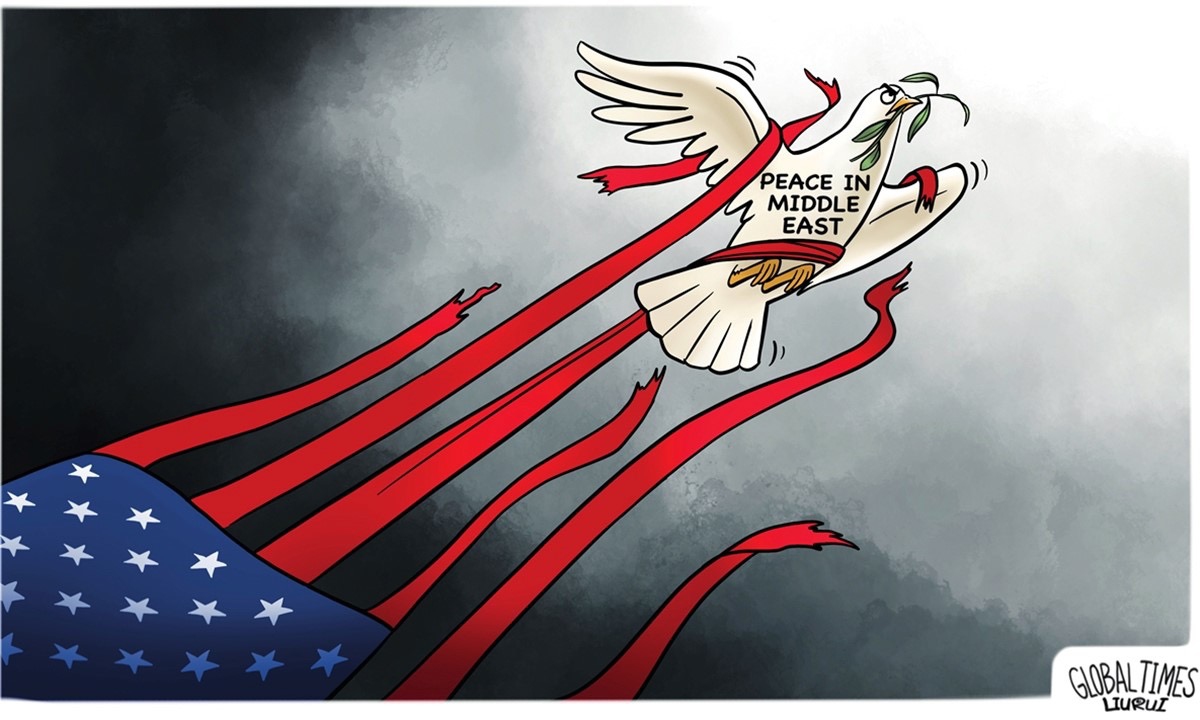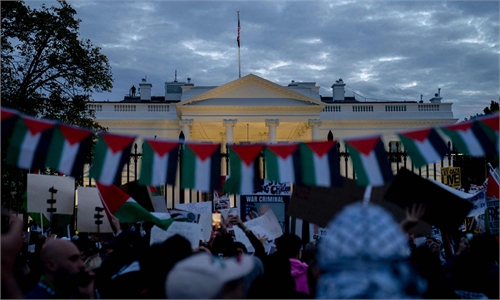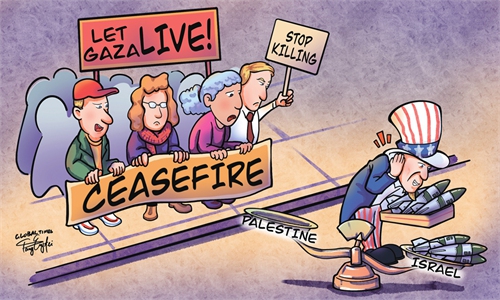
Free at last Image: Liu Rui/GT
The conflict between Israel and Palestine has been ongoing for over a month, and a serious humanitarian crisis has already occurred. While global focus is on the ongoing conflict, the potential challenges of the spillovers have not been sufficiently noted. Judging by the very dangerous prospect of the spillovers, it is expected that parties at stake need to take substantial actions to de-escalate tensions.The first spillover, which actually has already taken place, involves sub-state actors. Last month saw occasional exchanges of fire between Israel and the US on one side and sub-state actors including Hezbollah of Lebanon and Houthis of Yemen and various armed groups in Iraq. And the involvement of sub-state actors suggested that spillover had already taken place. And with the situation in Gaza Strip becoming worse, this category of spillover could even grow, which would create more uncertainties in the region.
The second spillover, which also has already taken place, was the significant tensions between Arab countries and Israel. In recent years, there has been a warming of relations between Israel and Arab countries, reflecting the region's desire for détente and peace. That might also be the reason for Arab countries adopting a passive rather than an active approach toward the recent Israel-Palestine conflict.
However, the people of Arab countries still strongly identify with the legitimate cause of the Palestinians' aspiration for a nation, which puts a significant amount of pressure on the governments of Arab countries. The Palestine issue remains politically relevant for Arab countries. With tensions growing, they will face more and more pressure from within.
Last week, Jordan recalled its ambassador to Israel, and refused to allow the Israeli ambassador to return. Bahrain announced on November 2 that it had recalled its ambassador from Israel and suspended economic ties with Israel. These initial responses could be seen as signals from Arab countries. If the situation continues to deteriorate, it is quite possible that more Arab countries will take similar diplomatic and economic actions, which could lead to a regional boycott against Israel.
The third spillover could be the growth of anti-Western radical elements. The lack of justice regarding the Palestine issue is a manifestation of the humiliation imposed by the West on the Islamic World. The continuation of behaviors that seriously undermine human rights in Gaza and other parts of Palestine could trigger another round of anti-Western movements not only in the Middle East but also worldwide. One of the clearest messages expressed in 1998 by Osama Bin Laden, the founder of Al Qaeda, was that they were opposing the humiliation of Palestinians resulting from the occupation.
If the humanitarian disasters continue, sympathizers of Palestinians will expectedly become more emotional. The future could likely see European countries facing more radical elements as they have a high proportion of Muslims and sympathizers of Palestinians.
The fourth could be a geopolitical campaign among major global actors. There is no question that the Palestine issue is one that justice is absent by nature as a result of power politics and hegemony. Any efforts to reconstruct the truth cannot hide the reality. Without justice, peace can never be available.
Unfortunately, it seems that the Biden administration and American decision-makers do not have any intention to think twice about their unreasonable policy. It is even worse that the Biden administration is using the hot topic for its own global geopolitical ambitions. In October, he submitted a $100 billion supplemental request to Congress, with $61 billion, more than half, actually going to Ukraine. With such a package, Biden saw a high chance that the request would be passed by Congress as they are always ready to pass resolutions to assist Israel. Linking the Palestine-Israel conflict to global politics will make the issue really spill over to become a global campaign for geopolitical interests.
In one word, it seems the US and the West in general are both blind and immune to the humanitarian crisis in Palestine. Their intentional ignorance of the severity of the spillovers would seriously undermine global security in many ways. While preparing for the worst, global efforts for peace should be united in resisting against any unreasonable policy. Those in favor of peace will have to make every effort to put pressure on the US, urging the US to stop Israel.
The author is senior research fellow with Shanghai Institutes for International Studies. opinion@global times.com.cn



